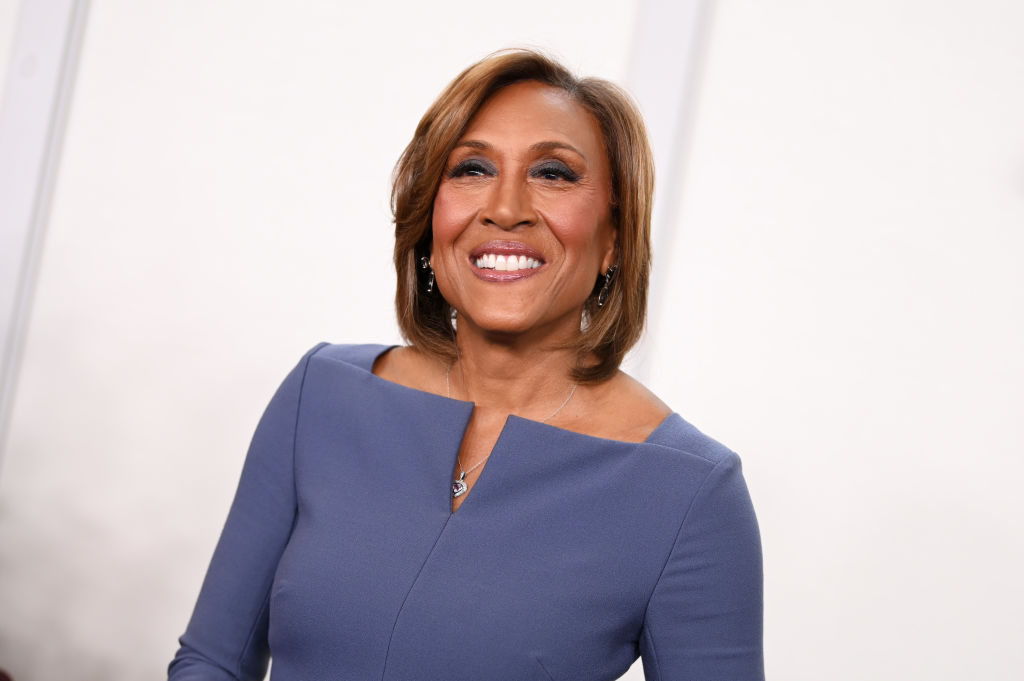Source: Kristina Bumphrey / Getty – Robin Roberts
The Resilience of Women: Breast Cancer Stories and Lessons
As the leaves turn and autumn settles in, October comes alive with reminders of breast cancer awareness.
From companies tinting their logos pink to NFL teams donning custom jerseys that support breast cancer research, the message is clear—this fight touches everyone.
No matter your wealth, fame, or social media following, breast cancer knows no boundaries. It affects women of all backgrounds, reminding us that awareness and early detection are critical tools in saving lives, especially in the often-overlooked Black and Brown communities.
Breast cancer touches the lives of millions of women, but for Black and Brown women, it carries unique challenges and disparities.
Source: Jesse Grant / Getty – Wanda Sykes
Black women are 41% more likely to die from breast cancer than white women, despite being diagnosed at similar rates.
This stark reality is linked to delayed diagnoses, lower access to healthcare, and more aggressive cancer subtypes like triple-negative breast cancer, which disproportionately affects Black women.
Source: UNIQUE NICOLE / Getty – Sheryl Lee Ralph
Sheryl Lee Ralph, an advocate and actress, has long spoken out about her breast cancer scare and the importance of getting screened.
Her openness about the need for early detection mirrors that of comedian
Wanda Sykes, who opted for a double mastectomy after her diagnosis with ductal carcinoma in situ (DCIS), a non-invasive breast cancer, in 2011.
“I just wanted to get rid of it,” Sykes said, highlighting how even early-stage cancer can carry a significant emotional toll.
Source: Dimitrios Kambouris / Getty – Vanessa Bell Calloway
She, like many other Black women, emphasized the importance of trusting your body and advocating for the best care possible.
Source: Nancy Ostertag / Getty – Ananda Lewis
Ananda Lewis, a former TV host, shocked many when she revealed her stage 3 breast cancer diagnosis in 2020.
After avoiding mammograms for years out of fear and misconceptions, her story serves as a sobering reminder of the importance of regular screenings, especially for women of color.
Michelle Thomas, known for her role in Family Matters, and the legendary
Hattie McDaniel, the first Black woman to win an Oscar, both passed away from cancer complications.
Their stories underline the need for better healthcare access and understanding in Black communities.
Early detection remains key to survival.
Women should be aware of early signs of breast cancer, which include:
A lump in the breast or underarm
Changes in the size or shape of the breast
Dimpling or puckering of the skin
Nipple discharge or inversion
Redness or flaky skin on the breast
Self-examinations are crucial and can be done at home. Here’s how:
In the shower: Use the pads of your fingers to move in a circular motion from the outside of your breast to the center, feeling for lumps or thickening.
In front of a mirror: Look for any changes in the appearance of your breasts, including size, shape, or skin texture.
Lying down: Place a pillow under your right shoulder and check your right breast with your left hand, using a similar circular motion. Repeat for the left side.
Source: solidcolours / Getty
While self-examinations are helpful, they should never replace regular mammograms. It is recommended that women start getting mammograms at age 40, or earlier if there is a family history.
There are many misconceptions about breast cancer that can deter women, particularly in Black and Brown communities, from seeking care.
One common myth is that only women with a family history are at risk.
In fact, 85% of women diagnosed with breast cancer have no family history of the disease.
Another myth is that mammograms cause cancer or are extremely painful—both are untrue.
Additionally, many believe that breast cancer only affects older women, but young women, like
Ananda Lewis, are not immune.
Breast cancer in younger women can be more aggressive, making early detection and regular screening even more important.
RELATED | “Boy Meets World” Alum Danielle Fishel Thanks Fans For Support After Announcing Breast Cancer Diagnosis
The stories of these remarkable women highlight both the pain and the power of surviving breast cancer.
By sharing their journeys, they remind us all of the importance of self-awareness, early detection, and breaking through the misconceptions that can keep women, especially Black and Brown women, from seeking help.
While Breast cancer is often seen as a women’s disease, men are not immune.
Though rare, about 1 in 833 men will be diagnosed with breast cancer in their lifetime.
In 2023, it’s estimated that around 2,800 men in the U.S. will be diagnosed with breast cancer, and approximately 530 will die from it.
Source: Courtney Hale / Getty
Men often discover the disease later due to a lack of awareness, which can lead to worse outcomes.
It’s crucial for men to know the signs, such as lumps, nipple discharge, or changes in the breast, and seek medical attention if they notice anything unusual.
Breast cancer awareness must extend to all genders for effective early detection and treatment.
If there’s one message to take away, it’s that breast cancer is not just a medical issue—it’s a community issue.
By educating ourselves, performing regular self-examinations, and advocating for better healthcare access, we can help ensure that more women survive and thrive, just like
Sheryl Crow,
Robin Roberts, and
Jaclyn Smith have.
The post The Resilience of Women: Breast Cancer Stories and Lessons appeared first on The Morning Hustle.
The post The Resilience of Women: Breast Cancer Stories and Lessons appeared first on Black America Web.
 play_arrow
play_arrow
 play_arrow
play_arrow




